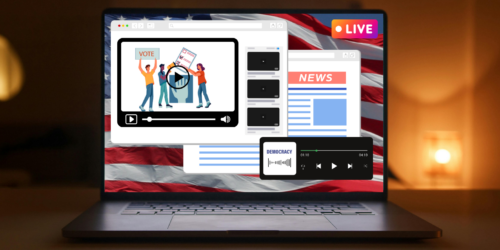
Video
Making Democracy Interesting: Tips from TV, Podcasts, Science Fiction, and Online Creators
The Allen Lab for Democracy Renovation’s Making Democracy Interesting webinar brought together scholars, writers, and creators to explore how storytelling can make democratic life feel more accessible, human, and compelling.
